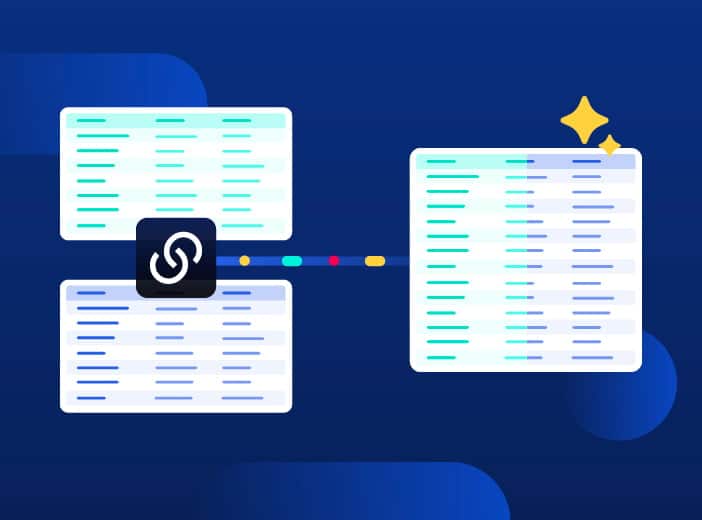5 Good Reasons to Share Your Public Data
Follow Agata's monthly column covering open data success stories from across the world. Read on to find out 5 good reasons why your local government should share its public data.

In my last article I shared with you some of the perks of reusing open data through three success stories from across Europe. But what are the benefits of publishing data in the first place?
This is a fair question, particularly if you represent a small local administration. You probably find yourself under mounting pressure to “innovate” and become “smart” while also facing budget constraints. Believe me, I grew up up in a town of less than 3500 inhabitants and am very familiar with these dynamics. Can open data help your town overcome these challenges?
Although open data is no magic wand, it can be part of the formula to make the spell work. Curious to find out what’s in it for your local government? Then follow me on a journey across three continents to explore 5 good reasons to share your data!
1 - Open data to improve transparency and accountability
This is an adage in the open data ecosystem. But what do transparency and accountability mean in practice? To Chapel Hill, a town in North Carolina (USA), it means making data on a large range of topics available to the public : from budget allocation to air quality, from police incident reports to town-owned properties. It doesn’t matter if you are a local data journalist, a shopkeeper or a curious school pupil: the Opendatasoft-powered portal enables you to analyze, export, combine and create graphs with dozens of datasets to improve transparency and accountability. The open data portal empowers Chapel Hill residents by giving them access to information that was traditionally a prerogative of the local administration. This allows citizens to scrutinize the government’s activity and identify issues that would deserve more public attention.
2 - Open data to make urban planning sustainable and inclusive
Redesigning urban areas often creates tensions between project requirements and resident demand. To accommodate both, Helsinki tested a solution that combined open data, gamification and citizen engagement. In 2015, the Finnish capital became the first city in the world to release 3D models of its surface as open data. This data was then used across 12 pilots, among which Ogelikone, a project that aimed at consulting residents on the creation of a new transport hub near the Oulunkylä station. To achieve this goal, a video-game-like interface was created through which residents could fill in a questionnaire about what they wanted the station to look like and obtain a 3D model of the area based on their answers. In other words, the open data 3D model allowed citizens to compare different urban development projects and to find the one that best matched their preferences.
3 - Open data to increase efficiency and attract business
Even if empowering and engaging your citizens sounds like a great idea to strengthen trust in your local administration, you might still be wary of the costs of setting up and maintaining an open data portal. Don’t worry, we’ve considered that, too. In an interview with two experts, my colleague Pamela explains that open data can help you improve the efficiency of your administration by cutting down costs and saving civil servants’ time. Besides, open data can provide useful information to existing businesses and prompt the creation of new ones. A famous example is Citymapper, the free transport app launched in London in 2011 and now available in 39 cities. Citymapper merges cities’ open data with data from alternative means of transport, such as scooters. Other features that make it stand out are real-time updates on delays, traffic disruptions and carriage occupancy as well as recommendations of station exits to minimize your travel time.
4 - Open data to become a smart (rural) community
Now that we’ve settled that open data is worth investing in, what could prevent you from launching an open data portal in your town? Well, you might think that open data is a luxury for urban areas. The Southern Grampians Shire Council (SGSC), a rural community in south-western Australia, is ready to prove you wrong. Open data is an integral part of the SGSC’s strategy to become a smart rural community, that is, one where you can enjoy the perks of countryside life while staying connected as you would do in a city.
To this end, free LoRaWAN gateways for smart farms and a free wi-fi network have been set up throughout the shire (no kidding, local governments areas are really called shires in Australia). Real-time parking and weather sensors were installed (you can find the data here) and a self-walking tourist app was launched, too. The long-term goal of this strategy is to create incentives for young people to stay in the shire, while also attracting businesses and visitors.
5 - Open data to attract tourists
This last point takes us to one of the most promising, yet still developing, open data use cases: tourism. Few cities have taken this mission as seriously as those in Switzerland. Italian-speaking Lugano’s Minecraft4Switzerland project promoted local tourism by teaching children how to code famous Swiss buildings using the popular Minecraft video game and two open data maps. In German-speaking Zurich dozens of apps have been developed since the launch of the Open Government Data portal in 2012. Thanks to these apps visitors can now easily find information about free parking spots, picnic areas, public swimming pools and other leisure facilities, as well as visualize historical photos through augmented reality. In the French-speaking Vaud region, too, a project has been developed with ancient pictures. It’s called Smapshot and it aims at locating historical photos on an interactive country map.
The most important takeaway from these cities’ experiences is that it’s not enough to launch an open data portal. It must have a user-friendly design and allow for easy data manipulation. Above all, it needs to be promoted, both within your community and with external actors. This will encourage data reuse, attract visitors and businesses, and demonstrate your commitment to innovation.



